
Olinda: A Colonial Gem in Recife
Olinda, perched on the Atlantic coast and just a stone's throw away from Recife, is a true jewel of colonial architecture and vibrant culture. This UNESCO World Heritage site offers a charming blend of cobblestone streets, colorful houses, and centuries-old churches that transport visitors back in time. As you wander through its winding alleys, you'll encounter a plethora of local artisans, lively markets, and street performances that reflect the rich heritage of the region. One of the highlights of Olinda is its stunning views. The town is built on a series of hills, providing picturesque vistas of the ocean and the sprawling city of Recife below. The Alto da Sé is a must-visit, where you can enjoy panoramic views and visit the historic Sé Church. The sunsets here are particularly spectacular, casting a golden glow over the rooftops and the sea. Olinda is also famous for its cultural festivals, the most notable being its Carnival. Unlike the grandiose parades of Rio, Olinda's Carnival is more intimate and rooted in local traditions. The streets come alive with music, dance, and vibrant costumes, making it an unforgettable experience for any visitor. Whether you are an art lover, history enthusiast, or just looking to soak in the local culture, Olinda promises a rich and fulfilling experience.
Local tips in Olinda
- Wear comfortable shoes for walking on cobblestone streets.
- Visit the Alto da Sé for panoramic views and stunning sunsets.
- Try local delicacies at street markets and small eateries.
- If visiting during Carnival, book accommodations well in advance.
- Engage with local artisans and buy unique handcrafted souvenirs.
Olinda: A Colonial Gem in Recife
Olinda, perched on the Atlantic coast and just a stone's throw away from Recife, is a true jewel of colonial architecture and vibrant culture. This UNESCO World Heritage site offers a charming blend of cobblestone streets, colorful houses, and centuries-old churches that transport visitors back in time. As you wander through its winding alleys, you'll encounter a plethora of local artisans, lively markets, and street performances that reflect the rich heritage of the region. One of the highlights of Olinda is its stunning views. The town is built on a series of hills, providing picturesque vistas of the ocean and the sprawling city of Recife below. The Alto da Sé is a must-visit, where you can enjoy panoramic views and visit the historic Sé Church. The sunsets here are particularly spectacular, casting a golden glow over the rooftops and the sea. Olinda is also famous for its cultural festivals, the most notable being its Carnival. Unlike the grandiose parades of Rio, Olinda's Carnival is more intimate and rooted in local traditions. The streets come alive with music, dance, and vibrant costumes, making it an unforgettable experience for any visitor. Whether you are an art lover, history enthusiast, or just looking to soak in the local culture, Olinda promises a rich and fulfilling experience.
Iconic landmarks you can’t miss
Alto Da Sé
Discover panoramic views, rich history, and vibrant culture at Olinda's Alto da Sé, a UNESCO World Heritage Site with stunning vistas.
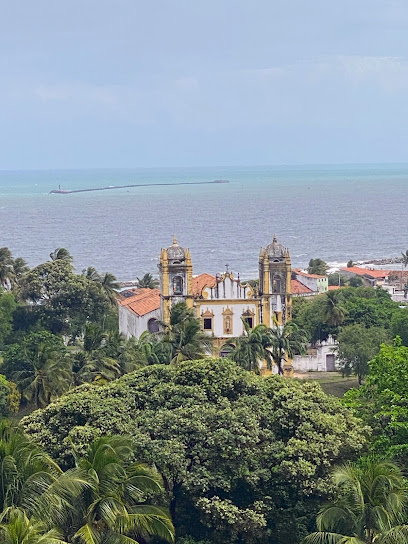
Centro Histórico de Olinda
Discover Olinda's Historic Center: A vibrant UNESCO site with colonial architecture, stunning views, and rich Brazilian culture.
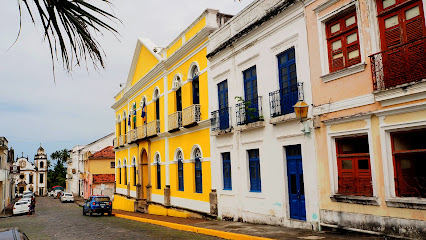
Amparo Largo
Discover Olinda's charm in Amparo Largo: a vibrant hub of art, culture, and history surrounded by colorful colonial architecture.
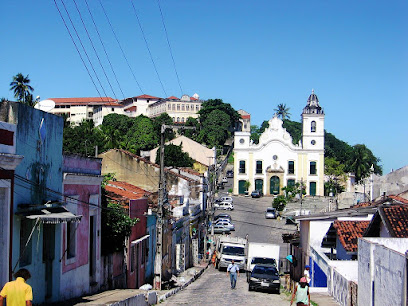
Casa dos Bonecos Gigantes de Olinda
Discover the enchanting world of giant puppets at Olinda's cultural gem, showcasing the heart of Pernambuco's Carnival tradition.
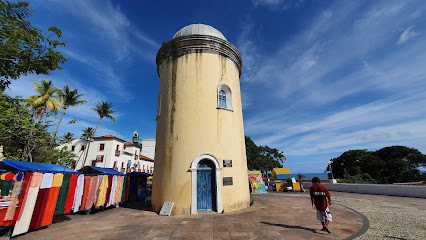
Slope of Mercy
Discover Olinda's Slope of Mercy: A historic landmark with colorful architecture, stunning views, and a journey into Brazil's colonial past.
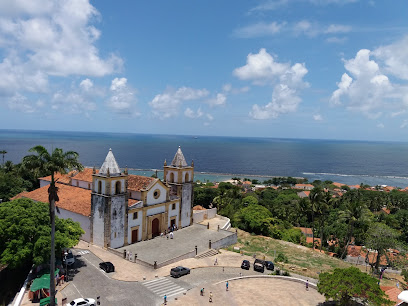
Olinda Beach
Experience the beauty of Olinda Beach, where golden sands meet the vibrant culture and history of Pernambuco, Brazil.
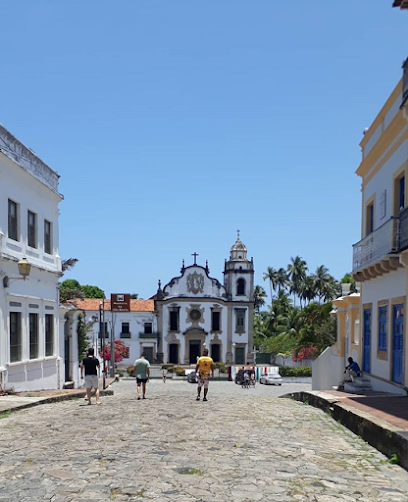
San Francisco Fort
Explore the historic San Francisco Fort in Olinda, Brazil: a 17th-century fortress with panoramic views and rich colonial history.
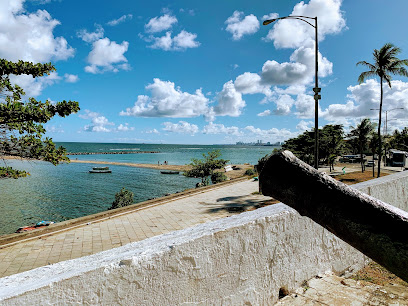
Museu Regional de Olinda
Step back in time at Olinda's regional museum, exploring colonial-era furniture, art, and artifacts in a historic 18th-century residence.
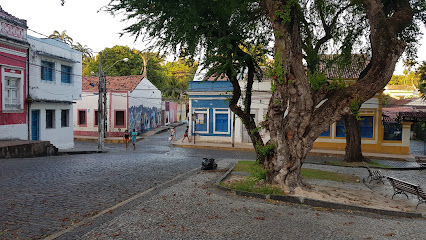
Senate ruins, Olinda-PE
Explore the Senate Ruins in Olinda, a historical landmark offering a glimpse into Brazil's colonial past and early republican ideals.
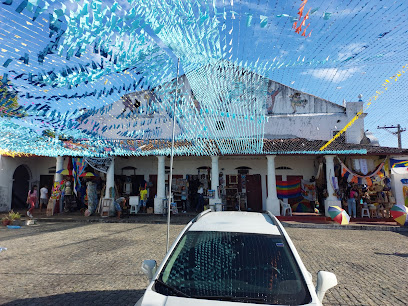
Largo Varadouro
Discover Olinda's history and culture at Largo Varadouro, a vibrant square with craft markets and a lively atmosphere.
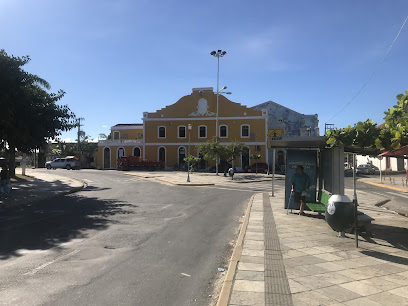
Limite Recife/Olinda
Discover the historical allure of Limite Recife/Olinda, where vibrant culture & stunning architecture meet in Pernambuco's heart.
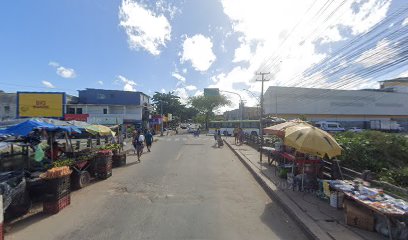
Unmissable attractions to see
Alto Da Sé
Discover panoramic views, historic churches, and vibrant culture at Olinda's Alto da Sé, a UNESCO World Heritage Site in Brazil.
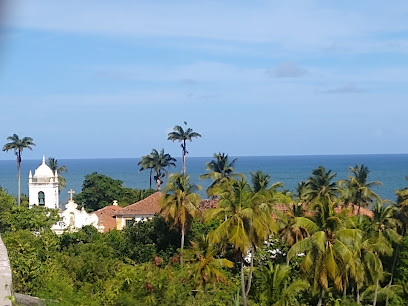
Mirabilandia
Experience thrilling rides and unforgettable memories at Mirabilandia, the premier amusement park in Olinda, Brazil, with attractions for all ages.
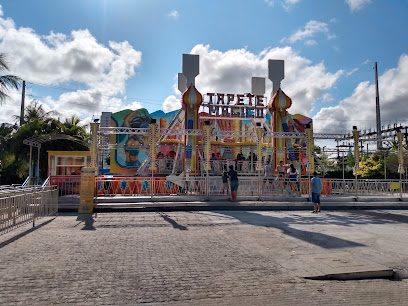
Barracks Beach
Experience the vibrant atmosphere of Barracks Beach in Olinda, a lively coastal hub with sports, dining, and easy access to city attractions.
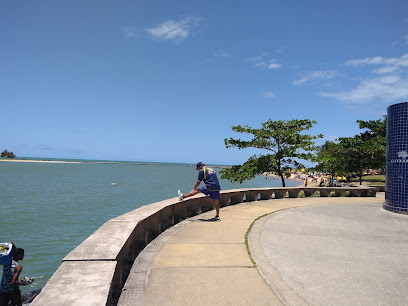
Centro Histórico de Olinda
Discover Olinda's UNESCO-listed historic center: colorful colonial architecture, stunning views, and vibrant culture await!
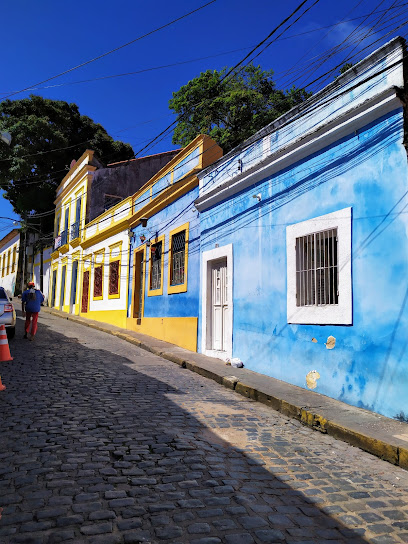
Amparo Largo
Discover Olinda's vibrant culture at Amparo Largo: a picturesque square with colorful colonial architecture, art, and stunning views.
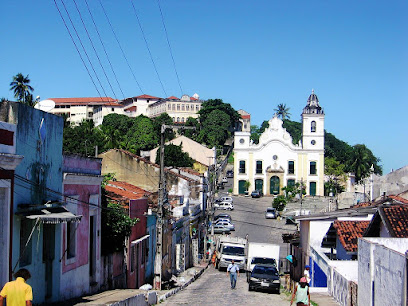
Embassy of Pernambuco - Olinda Dolls Giants
Discover the magic of Olinda's Carnival at the Embassy of Pernambuco, home to the iconic Bonecos Gigantes!
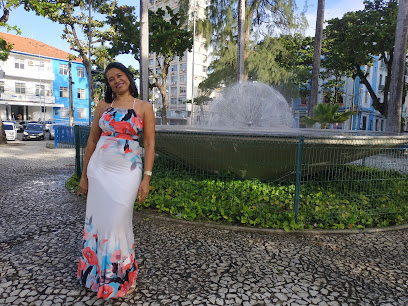
Casa dos Bonecos Gigantes de Olinda
Experience the magic of Olinda's Carnival year-round at Casa dos Bonecos Gigantes, home to the city's iconic giant puppets and cultural heritage.
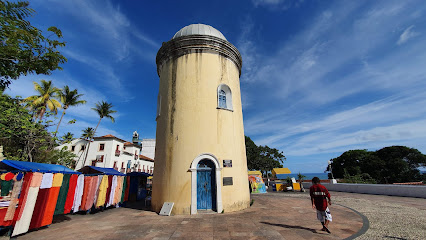
Lighthouse Beach
Discover Olinda's Lighthouse Beach: a local favorite with golden sands, surf-friendly waters, and stunning Atlantic views.
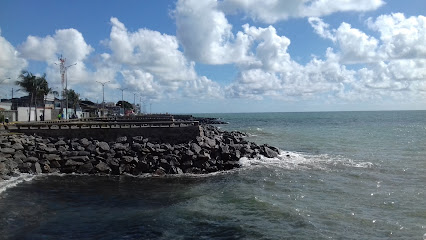
Museum Mamulengo
Explore Brazil's vibrant puppetry tradition at Olinda's Museu do Mamulengo, a cultural treasure trove for all ages.
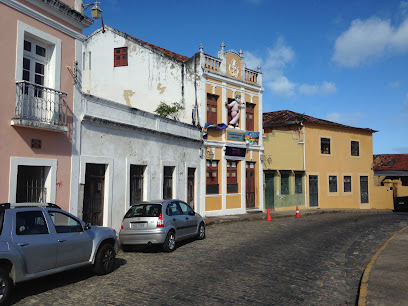
Museu Regional de Olinda
Step back in time at Olinda's regional museum, exploring colonial life through furniture, art, and historical treasures in a beautiful setting.
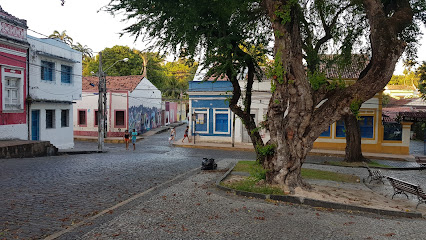
Essential places to dine
Bode do Nô Olinda
Experience authentic Brazilian cuisine and exquisite cocktails at Bode do Nô in Olinda – a culinary gem waiting to be discovered.
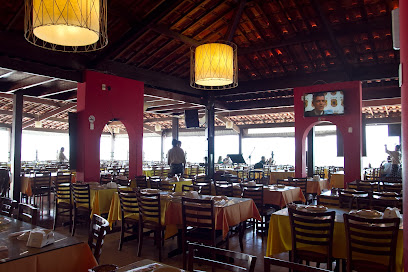
Restaurant Star Of Olinda
Experience exquisite seafood dining at Restaurant Star Of Olinda - where traditional Brazilian flavors meet fresh local ingredients.
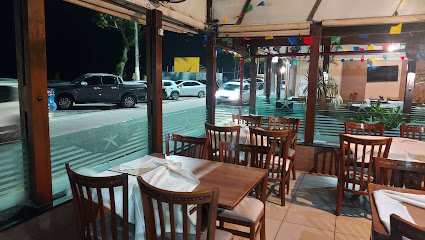
Restaurant Star Of The Sea
Experience the finest seafood and Brazilian barbecue at Restaurant Star Of The Sea in Olinda—a must-visit culinary destination.
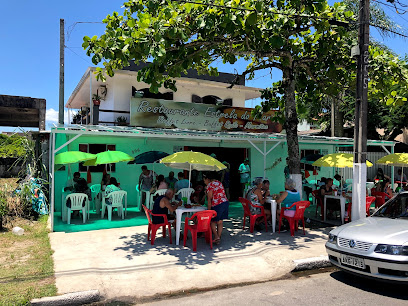
Oficina do Sabor
Discover authentic Brazilian cuisine at Oficina do Sabor in Olinda - where every dish is a flavorful journey through Pernambuco's culinary landscape.
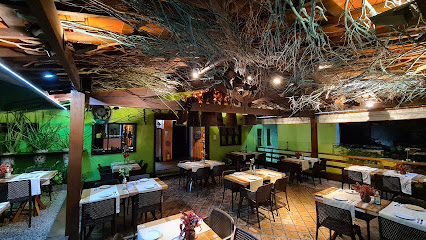
Restaurante Beijupirá Olinda
Discover exquisite seafood at Restaurante Beijupirá Olinda, where every dish celebrates the flavors of Brazil’s coastal cuisine.
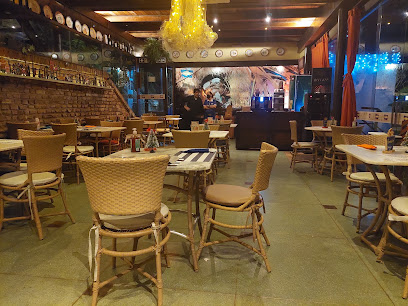
Casa de Noca
Discover authentic Brazilian flavors at Casa de Noca in Olinda - where tradition meets culinary creativity in a charming setting.
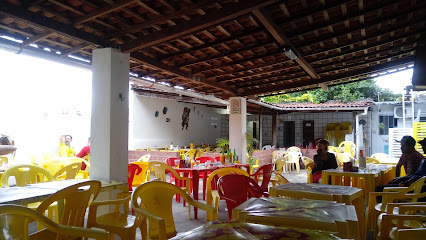
Olinda Art & Grill
Experience authentic Brazilian cuisine at Olinda Art & Grill amidst the artistic charm of historic Olinda.
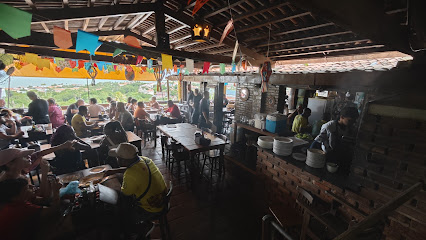
Don Francesco Trattoria
Savor authentic Italian cuisine at Don Francesco Trattoria in Olinda - a culinary journey through Italy's finest flavors.
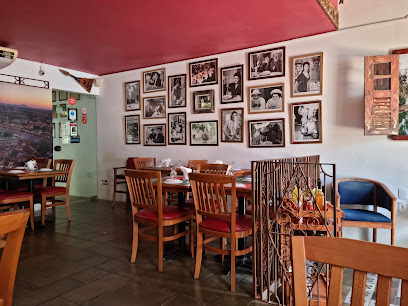
Restaurante Patuá
Discover the best seafood in Olinda at Restaurante Patuá, where fresh ingredients meet vibrant Brazilian flavors in a delightful setting.
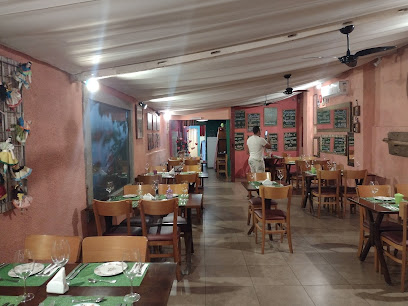
Tribuna Sabores Ibéricos
Experience authentic Portuguese and Spanish cuisine at Tribuna Sabores Ibéricos in Olinda - a culinary haven for food lovers.
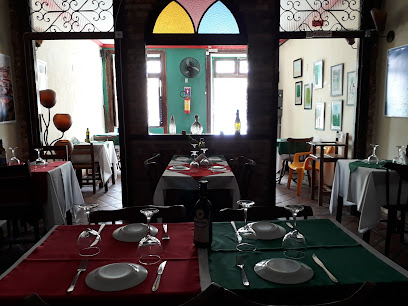
Bistrô Flor do Coco
Experience the vibrant flavors of Brazil fused with French elegance at Bistrô Flor do Coco in scenic Olinda.
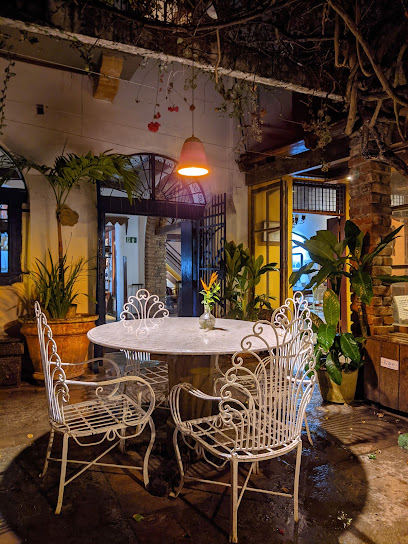
Markets, malls and hidden boutiques
Galeria São Salvador - Galeria de Arte | Loja de artesanato | Loja de presentes
Discover the vibrant artistry and unique handicrafts of Galeria São Salvador in Olinda, where local culture comes alive through exceptional art.
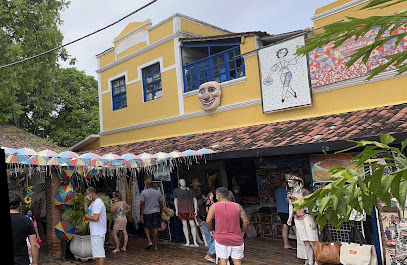
Love Gifts Olinda
Discover unique gifts and local crafts at Love Gifts Olinda, a charming novelty store in Recife, perfect for memorable souvenirs.

Rush Praia - Olinda Outlet
Experience the ultimate beachwear shopping at Rush Praia in Olinda - stylish, vibrant, and perfect for your sun-soaked adventures.
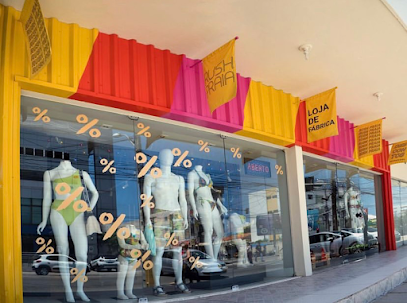
Rafa Q Faz
Discover the essence of Olinda through handcrafted fashion at Rafa Q Faz, where local artistry meets modern style.

Trifil - Shopping Patteo Olinda
Explore Trifil at Shopping Patteo Olinda for exquisite lingerie, stylish outerwear, and trendy sportswear in a vibrant shopping atmosphere.
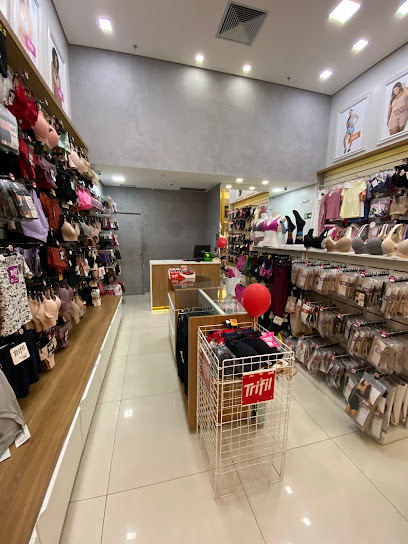
Atletas com Estilo - Olinda
Explore Atletas com Estilo in Olinda - Your go-to destination for stylish and functional sportswear that embodies the spirit of adventure.
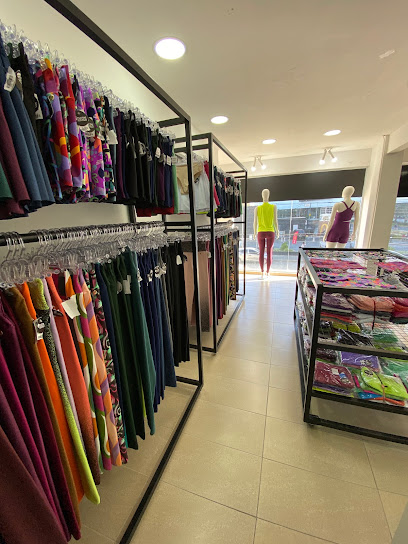
SHOPPING VARIEDADES
Discover the vibrant styles of Olinda at Shopping Variedades, where local culture meets trendy clothing in a welcoming atmosphere.

Dil
Explore Dil in Olinda for trendy beachwear and stylish accessories, embodying the vibrant spirit of Brazilian fashion in an enchanting setting.
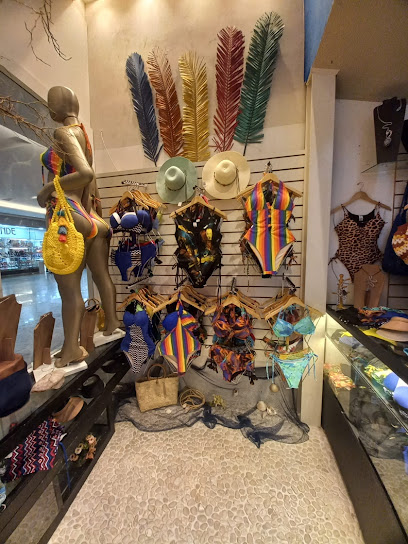
R&M Store
Explore the vibrant fashion scene at R&M Store, where trendy styles and local flair meet in a welcoming shopping atmosphere.

Condablio Loja
Explore unique fashion at Condablio Loja in Olinda, where contemporary style meets local culture in every piece.

Essential bars & hidden hideouts
Manny Deck Bar
Discover the lively Manny Deck Bar in Olinda, where stunning ocean views and a vibrant atmosphere create an unforgettable experience for every traveler.
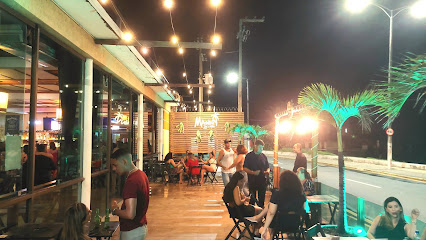
Bodega de Veio - Olinda
Experience the vibrant atmosphere and authentic flavors at Bodega de Veio, a must-visit bar in the heart of Olinda, Pernambuco.
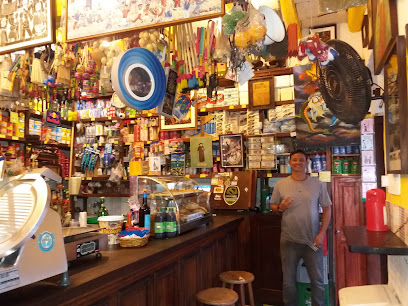
Cavalote Cervejaria Pub - Chopp Artesanal
Discover Cavalote Cervejaria Pub in Olinda: A lively live music bar with artisanal beers and delicious burgers in a vibrant setting.
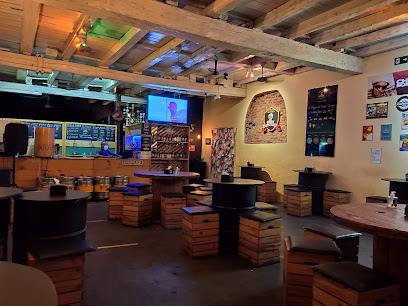
Casbah
Discover the lively nightlife of Olinda at Casbah, where local culture meets vibrant social experiences in a welcoming pub atmosphere.
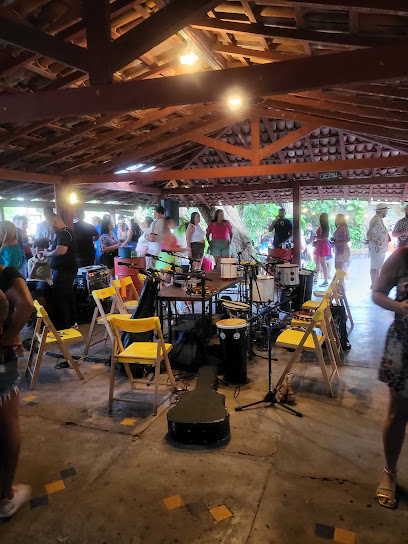
Bar do Ró em Olinda Pernambuco
Discover the lively rhythms and vibrant atmosphere at Bar do Ró, Olinda's premier live music bar showcasing the best of Brazilian culture.
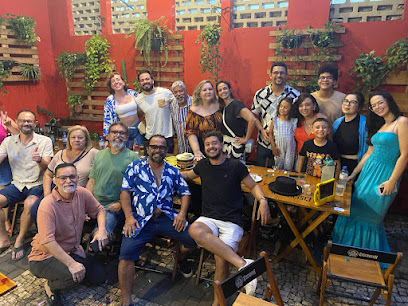
1 2 três Bar
Discover the vibrant nightlife at 1 2 três Bar in Olinda, where local flavors and live music create an unforgettable experience.
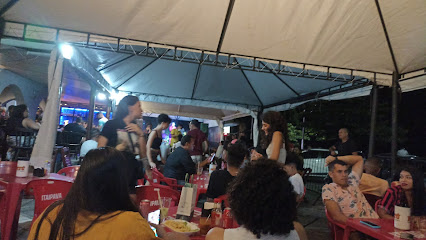
Bar Chaparrall do Cézar
Experience vibrant Brazilian pub culture at Bar Chaparrall do Cézar in Olinda, where local cuisine and drinks bring the nightlife to life.
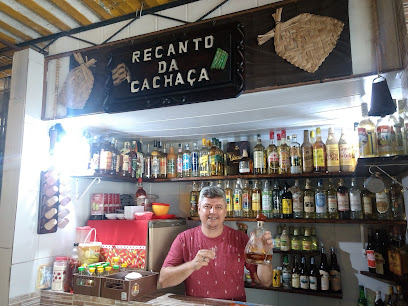
BLACK - Bar nos 4 Cantos de Olinda
Discover the lively spirit of Olinda at BLACK - Bar nos 4 Cantos, where local culture meets vibrant nightlife in a historic setting.
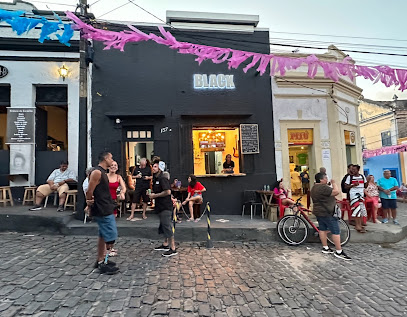
Renê Praia Bar Petiscaria - 30 anos de Praia (Área Verde,Banheiro,Estacionamento)81 99758-5242
Experience Olinda's vibrant dining scene at Renê Praia Bar Petiscaria, where delicious tapas meet breathtaking coastal views.
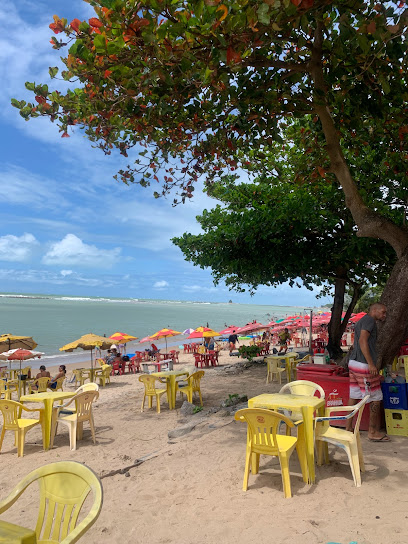
Palhoça da Diana - Bar na Praia de Olinda
Discover the vibrant cocktail scene at Palhoça da Diana, a charming beach bar in Olinda, perfect for relaxation and socializing under the sun.
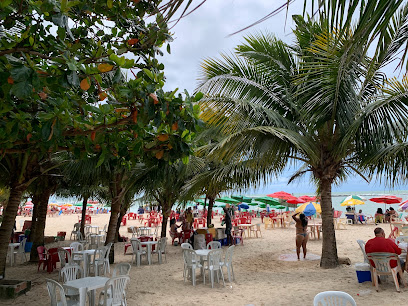
Local Phrases
-
- HelloOlá
[oh-LAH] - GoodbyeTchau
[CHOW] - YesSim
[seem] - NoNão
[now] - Please/You're welcomePor favor/De nada
[por fa-VOR/de NA-da] - Thank youObrigado
[oh-bree-GAH-doo] - Excuse me/SorryCom licença/Desculpe
[kohm lee-SEN-sa/dehs-KOOL-peh] - How are you?Como vai?
[KOH-moh vie] - Fine. And you?Bem. E você?
[beng/eh voh-SEH] - Do you speak English?Você fala inglês?
[voh-SEH FAH-lah een-GLEHZ] - I don't understandEu não entendo
[eh-oo now een-TEN-doo]
- HelloOlá
-
- I'd like to see the menu, pleaseGostaria de ver o cardápio, por favor
[goh-stah-REE-ah deh veh ooh kahr-DAH-pyoh/por fa-VOR] - I don't eat meatEu não como carne
[eh-oo now KOH-moo KAR-neh] - Cheers!Saúde!
[sah-OOH-deh] - I would like to pay, pleaseEu gostaria de pagar, por favor
[eh-oo goh-stah-REE-ah deh pah-GAHR/por fa-VOR]
- I'd like to see the menu, pleaseGostaria de ver o cardápio, por favor
-
- Help!Socorro!
[so-KOH-roh] - Go away!Vá embora!
[VAH em-BOH-rah] - Call the Police!Chame a polícia!
[SHAH-meh ah poh-LEE-see-ah] - Call a doctor!Chame um médico!
[SHAH-meh oom MEH-dee-koo] - I'm lostEstou perdido
[eh-STOH pehr-DEE-doo] - I'm illEstou doente
[eh-STOH doo-EN-chee]
- Help!Socorro!
-
- I'd like to buy...Eu gostaria de comprar...
[eh-oo goh-stah-REE-ah deh kohm-PRAR...] - I'm just lookingEstou só olhando
[eh-STOH soh oh-LYAHN-doo] - How much is it?Quanto custa?
[KWAHN-too KOOS-tah] - That's too expensiveIsso é muito caro
[EE-so eh MOO-ee-too KAH-roh] - Can you lower the price?Você pode baixar o preço?
[voh-SEH POH-deh BAHY-shahr ooh PREH-soh]
- I'd like to buy...Eu gostaria de comprar...
-
- What time is it?Que horas são?
[keh OH-rahs sah-oo] - It's one o'clockÉ uma hora
[EH OO-mah OH-rah] - Half past (10)Meio-dia e meia
[MAY-oo DEE-ah ee MAY-ah] - MorningManhã
[mah-NYAH] - AfternoonTarde
[TAHR-deh] - EveningNoite
[NOY-chee] - YesterdayOntem
[ohn-TEHM] - TodayHoje
[OH-zhee] - TomorrowAmanhã
[ah-mah-NYAH] - 1Um
[oom] - 2Dois
[doyz] - 3Três
[treys] - 4Quatro
[KWAH-troh] - 5Cinco
[SEEN-koh] - 6Seis
[says] - 7Sete
[SET-eh] - 8Oito
[OY-toh] - 9Nove
[NOH-veh] - 10Dez
[dehz]
- What time is it?Que horas são?
-
- Where's a/the...?Onde fica o/a...?
[ON-dee FEE-kah oh/ah] - What's the address?Qual é o endereço?
[kwahl eh oh en-deh-REH-soh] - Can you show me (on the map)?Você pode me mostrar (no mapa)?
[voh-SEH POH-deh meh moh-SHTRAH/noh MAH-pah] - When's the next (bus)?Quando é o próximo (ônibus)?
[KWAHN-doo eh oh proh-KSEE-moh/ohn-EE-boos] - A ticket (to ....)Um bilhete (para ...)
[oom bee-YEH-teh/PAH-rah]
- Where's a/the...?Onde fica o/a...?
History of Olinda
-
Olinda was founded in 1535 by the Portuguese explorer, Duarte Coelho Pereira. It quickly became an important center for sugarcane production and trade in colonial Brazil, thanks to its fertile land and strategic coastal location. The name 'Olinda' is believed to come from the Portuguese word for 'beautiful', reflecting the area's lush landscape.
-
During the 17th century, Olinda reached its peak as a cultural and economic hub. It was during this time that the city became the capital of the captaincy of Pernambuco. The wealth generated by sugar plantations led to the construction of stunning churches and baroque architecture, many of which still stand today, such as the Se Cathedral and the Church of São Bento.
-
In the 1630s, the Dutch seized Olinda and established control over the region, which led to a brief period of religious tolerance and cultural exchange. The Dutch rule introduced new architectural styles and urban planning concepts. However, their occupation was met with resistance from the Portuguese, leading to a series of conflicts that culminated in the Dutch retreat in 1654.
-
Following the Dutch retreat, Olinda faced a decline due to the rise of Recife as the commercial center of the region. However, in the 19th century, the city began to be rediscovered for its historical significance and architectural beauty. Efforts to restore its colonial buildings and promote tourism have transformed Olinda into a cultural heritage site, recognized by UNESCO in 1982.
-
Olinda is famous for its vibrant Carnaval celebrations, which are deeply rooted in the city's cultural identity. The festival features colorful parades, traditional music, and unique cultural expressions, including the iconic giant puppets known as 'bonecos'. This celebration attracts thousands of visitors each year, showcasing Olinda's rich cultural heritage and artistic spirit.
Olinda Essentials
-
Olinda is approximately 6 kilometers from downtown Recife and is easily accessible by public transport. Buses to Olinda can be caught from various points in Recife, including the central bus station. The journey typically takes around 30 to 45 minutes. Alternatively, taxis and ride-sharing services like Uber are widely available and offer a more direct route.
-
Olinda is best explored on foot, especially the historical areas with their narrow streets and colonial architecture. The town is relatively small, and many attractions are within walking distance. Local buses also connect Olinda with Recife, and bicycle rentals are available in the area, providing a fun way to navigate the scenic coastline.
-
Olinda is generally safe for tourists, but standard precautions should be taken. Areas around the historic center are usually safe during the day, but tourists should avoid walking alone at night in less populated areas. Petty crime, such as pickpocketing, can occur, particularly during festivals or in crowded places. Stay vigilant and keep your belongings secure.
-
In case of emergencies, dial 190 for police assistance or 192 for medical emergencies. Hospitals and clinics are available in Olinda, and it is advisable to have travel insurance that covers medical needs. For minor health issues, local pharmacies can provide over-the-counter medications.
-
Fashion: Do wear lightweight, comfortable clothing due to the tropical climate. Avoid overly revealing attire, especially in religious sites. Religion: Do respect local customs; when visiting churches, cover your shoulders and knees. Public Transport: Do follow local etiquette by giving up seats for elderly passengers. Don't eat or drink on public transport. Greetings: Do greet locals with a friendly smile and a handshake. Eating & Drinking: Do try local dishes such as 'acarajé' and 'caldinho'. Don’t refuse food or drink offered by locals, as it may be seen as impolite.
-
To experience Olinda like a local, visit the vibrant artisan markets where you can find handcrafted goods and local delicacies. Engage with local artists and musicians, especially during cultural events. Explore the lesser-known streets to discover hidden gems, such as quaint cafes and shops. Don't miss the stunning views from the Alto da Sé, particularly at sunset.
Nearby Cities to Olinda
-
Things To Do in Fortaleza
-
Things To Do in Salvador
-
Things To Do in Brasília
-
Things To Do in Rio de Janeiro
-
Things To Do in São Paulo
-
Things To Do in Albina
-
Things To Do in Florianópolis
-
Things To Do in Moengo
-
Things To Do in Brokopondo
-
Things To Do in Mariënburg
-
Things To Do in Lelydorp
-
Things To Do in Paramaribo
-
Things To Do in Praia
-
Things To Do in Assomada
-
Things To Do in Hernandarias













